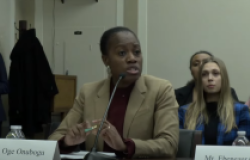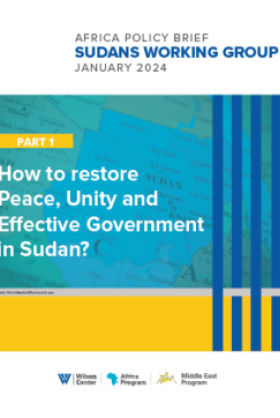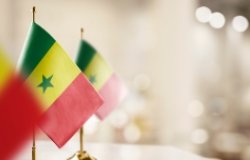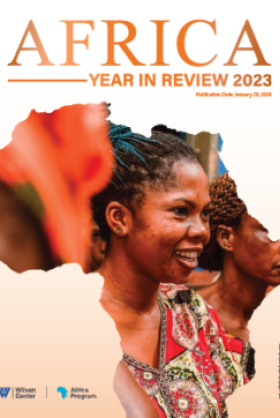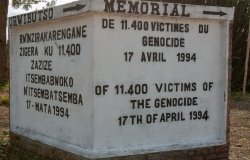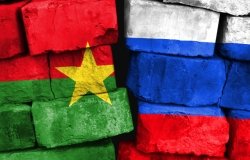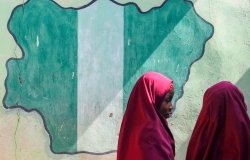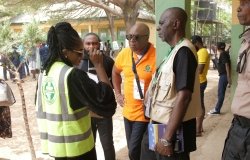Leadership Project Hosts Consultation on Goma Peace Process
On July 21, the Project on Leadership and Building State Capacity hosted the first of two consultations on the Democratic Republic of the Congo as part of a series devoted to fragile and failed states.
On July 21, the Project on Leadership and Building State Capacity hosted the first of two consultations on the Democratic Republic of the Congo as part of a series devoted to fragile and failed states. The particular focus of this meeting was the Goma peace agreement signed in January, what has happened to its implementation and why, and where to go from here. The meeting also looked at the impact, current and potential, of the conflict transformation initiative the Wilson Center has been guiding for key national and provincial Congolese leaders.
The consultation, held with a small group of diplomats, experts, and policymakers interested in the DRC, also explored the value of future consultations on fragile states as part of an informal process to foster more effective collaboration among US and international donors during a series of facilitated workshops.
Herbert Weiss, Emeritus Professor, Brooklyn College, City University of New York, started the meeting with a background on the history of violence in Eastern Congo and a look at recent international initiatives. Howard Wolpe, director of the Wilson Center's Leadership Project and Africa Program, spoke of the work the Wilson Center has been doing in the DRC and introduced Michel Kassa, the country team leader for the Wilson Center's Initiative for Collaborative Leadership and a Cohesive State in DRC, who gave an up-to-date, on-the-ground perspective of what is happening in Eastern DRC. Tim Shortley, senior adviser for conflict resolution at the State Department, reviewed the actions of the international community and looked ahead to future needs. Howard Wolpe and Michael Lund, consulting program manager, Leadership Project, and senior associate, MSI, moderated the sessions.
Related Program

Africa Program
The Africa Program works to address the most critical issues facing Africa and US-Africa relations, build mutually beneficial US-Africa relations, and enhance knowledge and understanding about Africa in the United States. The Program achieves its mission through in-depth research and analyses, public discussion, working groups, and briefings that bring together policymakers, practitioners, and subject matter experts to analyze and offer practical options for tackling key challenges in Africa and in US-Africa relations. Read more


